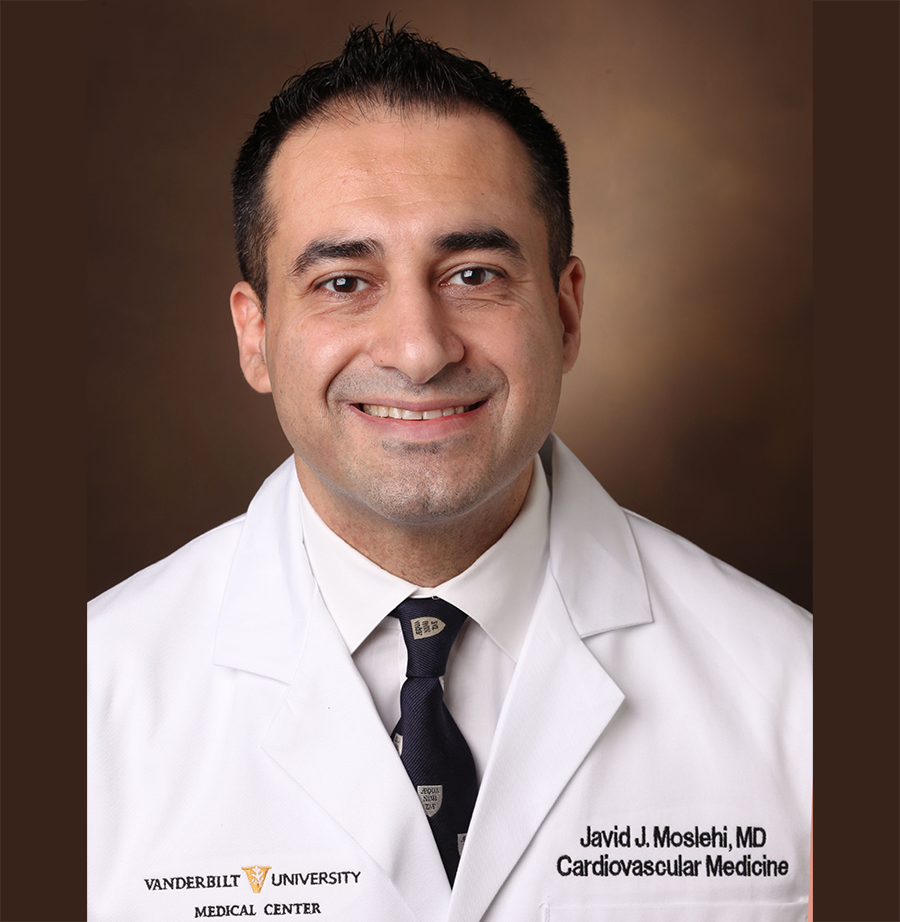
Javid Moslehi, MD
I am a cardiologist and myocyte biologist. My clinical focus is cardio-oncology (the cardiovascular care of cancer patients and cancer survivors). My basic and translational NIH-funded laboratory addresses myocardial responses to various stresses including hypoxia, aging and toxins. Over the last several years, given my clinical interest in cardio-oncology, my laboratory focus has been in delineating the mechanistic underpinnings of cardiovascular toxicities from novel targeted cancer therapies. I believe because of the targeted nature of the toxicities, cardio-oncology can provide insights into novel signaling pathways that are relevant in human cardiovascular biology and pathology.
At Vanderbilt, I am an Associate Professor of Medicine, Director of Cardio-Oncology and Co-director of Vanderbilt Program for Optimizing Immuno-oNcology Therapy (V-POINT). I work closely with cardiologists and oncologists, basic, translational researchers and clinicians locally, nationally and internationally. I have also started several collaborations with industry and regulatory bodies (including the US FDA). I was recently named the first chair of the American Heart Association (AHA) cardio-oncology subcommittee. At Vanderbilt, I have established a Graduate Medical Education (GME) approved fellowship training the next generation of physician-scientists in the field of cardio-oncology. I am an elected member of American Society of Clinical Investigation (ASCI).
Since 2016, a major focus of our clinical and research program has been the interaction between the cardiovascular and immune systems. Our group initially described a novel clinical syndrome of fulminant myocarditis that arises from (ICI) immune checkpoint inhibitors (Johnson et al, NEJM, 2016). We subsequently further defined the clinical characteristics of ICI-associated myocarditis (Moslehi et al, Lancet, 2018) and showed that cardiovascular sequelae of ICI include pericarditis, vasculitis and arrhythmias (Salem et al, Lancet Oncology, 2018). My laboratory has generated mouse models that recapitulate these novel immune-based clinical syndromes which have provided insights into new diagnostic and treatment strategies for these complications (Bonaca et al, Circulation, 2019; Salem et al, NEJM, 2019).